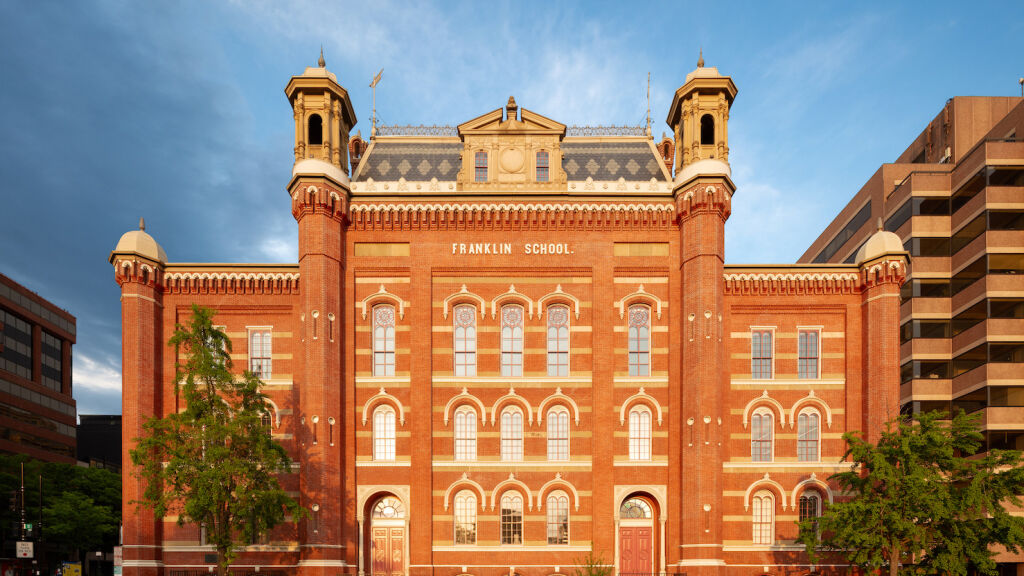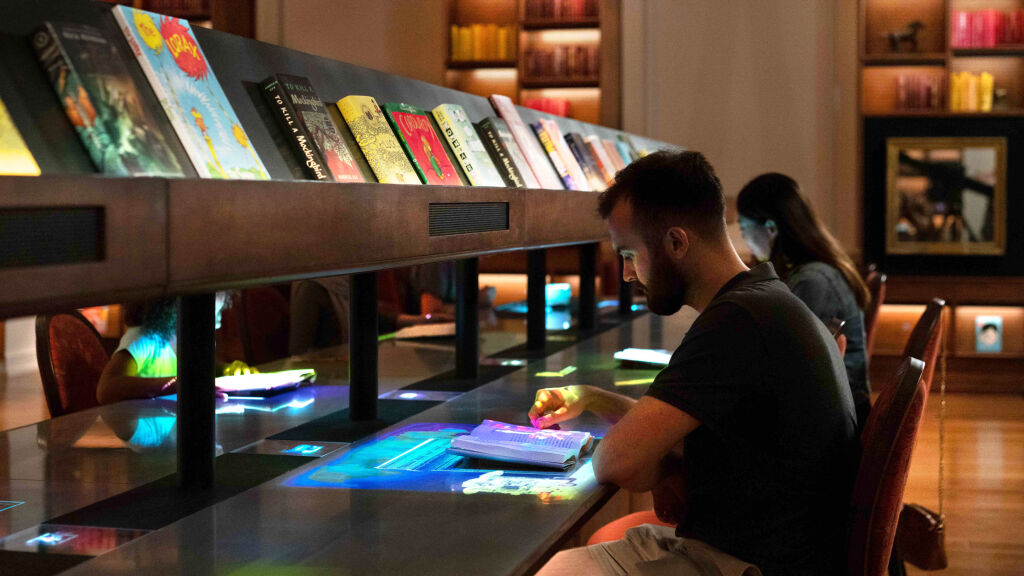Putting Aside Words as Weapons
This has been an incredibly hard few weeks for people who care about people, who work for peace, who strive to promote tolerance and understanding…and for people who care about words.
I would guess that, for the most part, those people are you — the supporters and friends of Planet Word, the people reading this.
You’ve followed the creation and development of Planet Word and how we wove our core values, including inclusivity, into all our museum experiences and programs in order to encourage people to use their words to create community, to heal, and not to wound.
You would know that we hope that a visit to the museum will help visitors understand the impact their word choices can have, and that they will leave the museum more attentive to the words they use and the words used around them. You know that we’ve always hoped that such an awareness will help build a more tolerant and empathetic society. You’ve also heard me say or write that each one of us has the ability to decide how we will use our words: for good or for ill.
So these past six weeks have been particularly gut wrenching for me as I’ve witnessed words being hurled carelessly by one side or another as a result of the Israel-Hamas war. I’ve hesitated to write anything about this upsetting situation as emotions are so raw, the news changes daily, and I don’t know whether there’s anything helpful I can add to the conversation.
But as I’ve heard more and more people say or write the most extreme things about people who disagree with them over this conflict, who seem to have chosen not to listen to themselves but instead actually seem proud to blurt out hurtful words — seeming to think that it’s courageous — I decided to write something.
Because I believe that Planet Word exists to prove the opposite. Using words to wound and dehumanize and terrorize our fellow human beings violates the sacred nature of our God-given human superpower: language.
What would be truly courageous would be to use our words to work together to find a resolution to this seemingly intractable conflict.
I suppose that sounds ridiculously Pollyannish, but, truly, what other way do we have out of this misery and deadlock?
The state of inflammatory word use is of a different kind and degree than we have seen heretofore: According to a November 15 article in the New York Times:
Calls for Gaza to be “flattened,” “erased” or “destroyed” had been mentioned about 18,000 times since Oct. 7 in Hebrew posts on X, the site formerly known as Twitter, said FakeReporter, an Israeli group that monitors disinformation and hate speech. The phrases were only mentioned 16 times in the month and a half before the war…
Incendiary statements are not limited to Israel…Ghazi Hamad, a senior leader of Hamas, vowed on Oct. 24 that the group would wipe out Israel as a country, and appeared to exult in the barbaric acts that his militants had carried out against Israeli civilians.
How uplifting then to read another Times story that beautifully exemplified how people can stop themselves before they fall into unthinkingly using divisive language that amplifies the pain of raw emotions. And that story perfectly illustrated Planet Word’s message, let me repeat: Each one of us has the ability to decide how we will use our words, for good or for ill. We can choose to use our words to divide or to bring together. It’s our choice.
The story described the Greater Jerusalem swim club, which brings Palestinian and Jewish youth together for competitive swim coaching. After the horrific attacks on October 7, the kids’ usual friendly relations at the pool cooled — the atmosphere was tense, no longer carefree. When team members’ online posts started to take an ugly turn, the teens questioned each other and explained their hurt feelings. In the end, they realized what they had to lose; they texted one another and expressed their hurt feelings, and then they deleted the offending tweets. As one of the swimmers said: “This is my second family. If we have a problem, we fix it like a team.” That’s how they used their words to build community, not to break it apart.
Words demand that we use them carefully or we will wind up with no shared vocabulary and no way of communicating with each other at all — truly creating the punishing Babel of the Old Testament.
—Ann Friedman, founder of Planet Word



